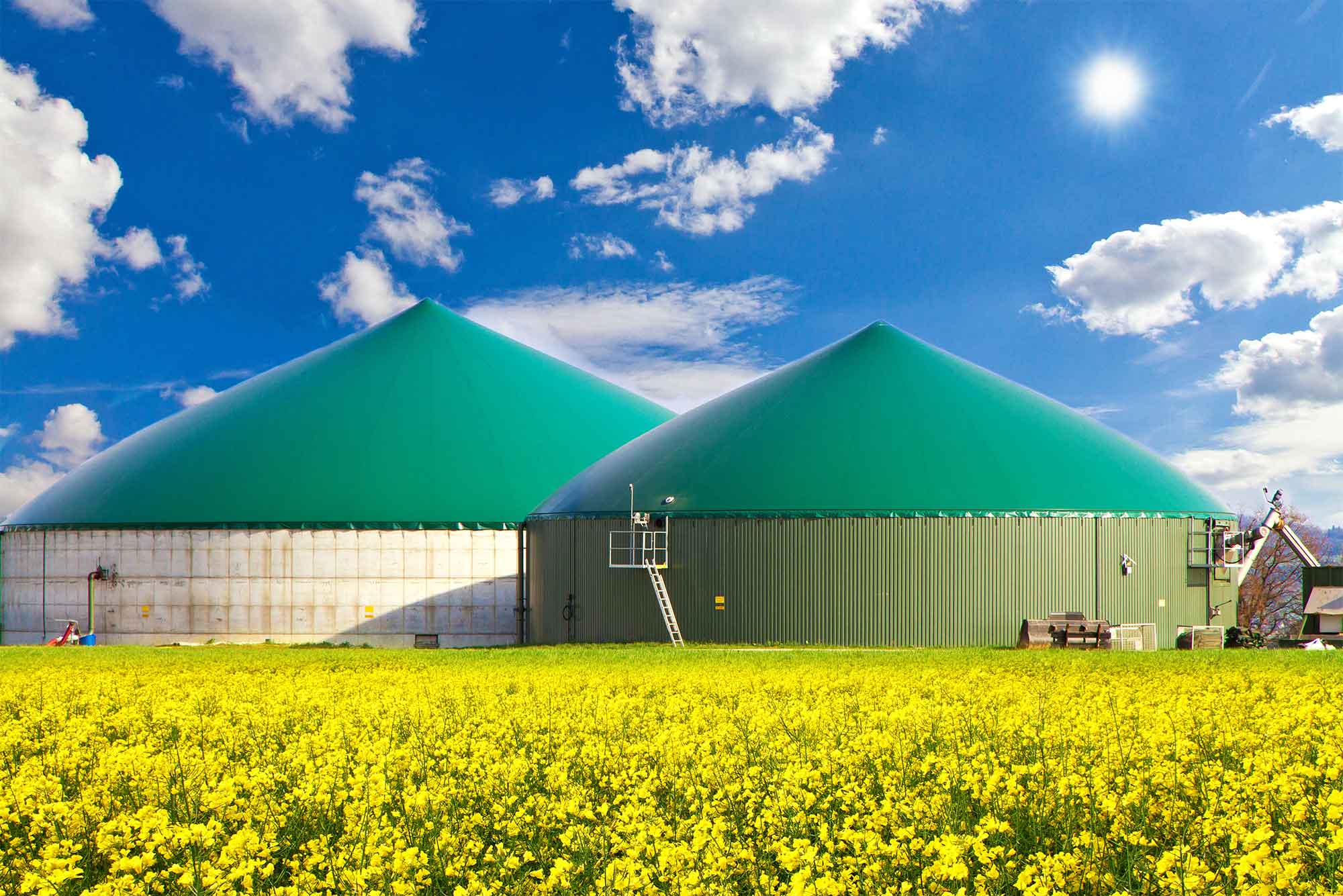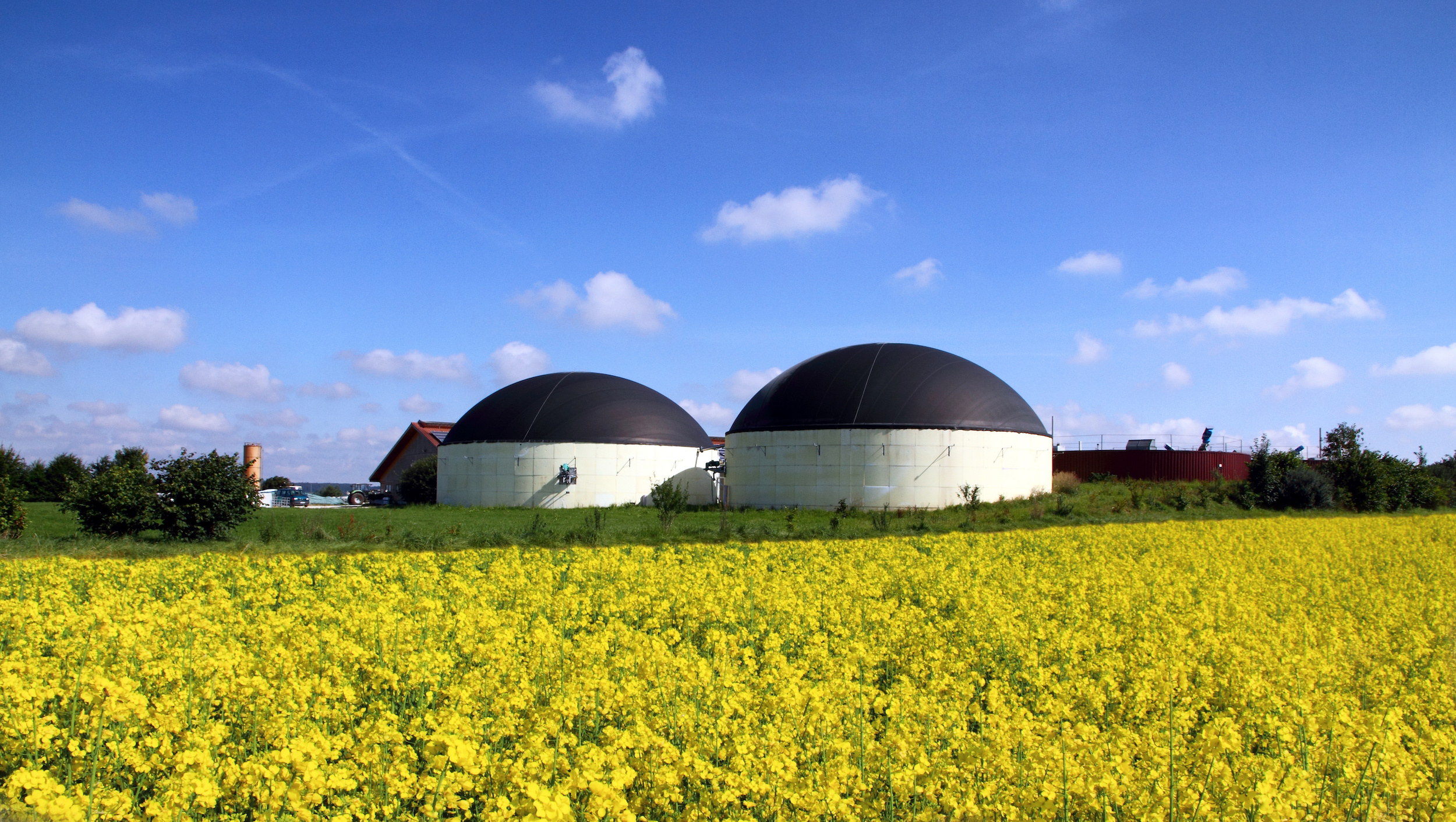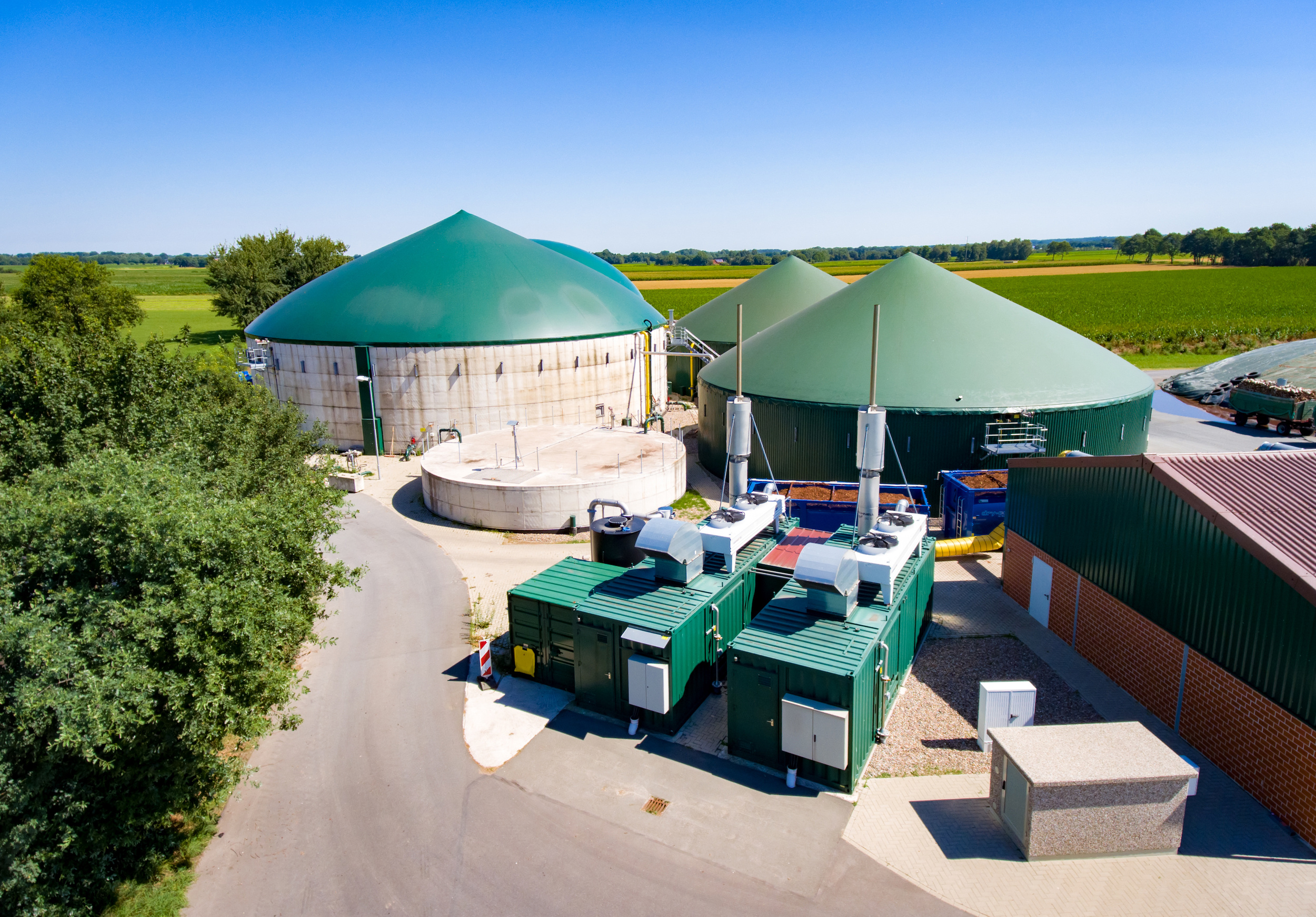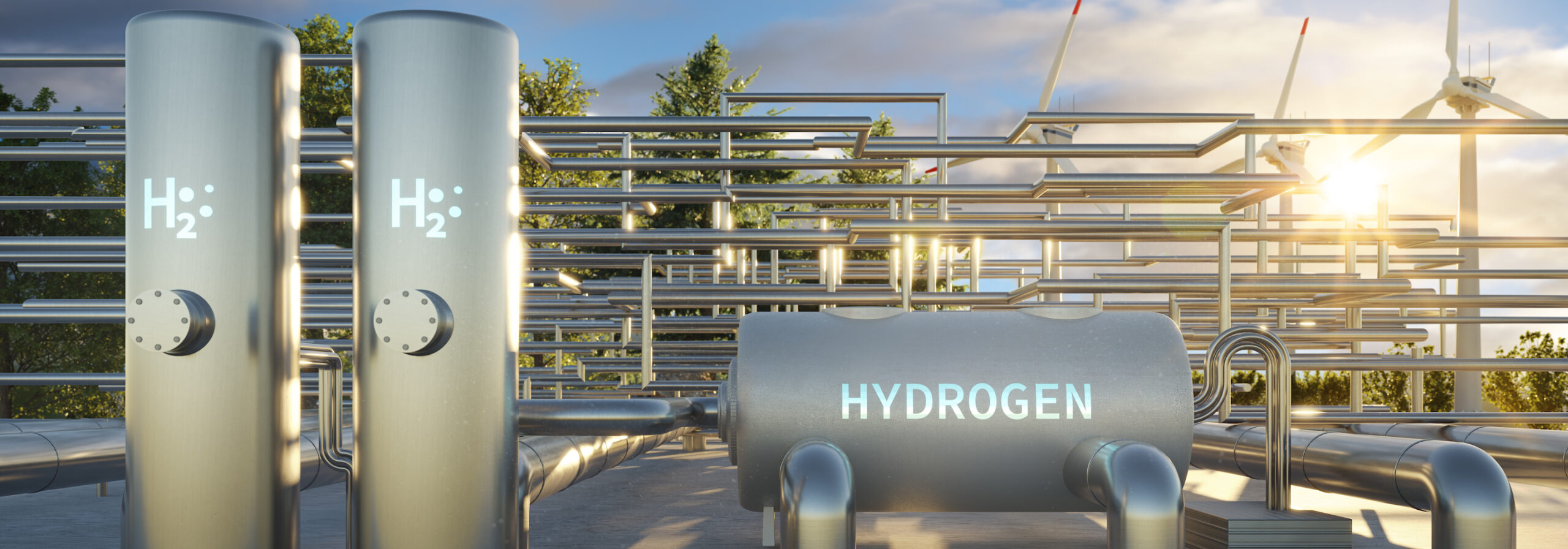Using Biogas Resources for Sustainable, Affordable Heat Supply

The proliferation of renewable energies is the passport to successful, long-term climate protection. Therefore, the motto is: Rethink energy. Current political events and changes underline the need for systematic utilization of existing resources and the opening up of new ways of needs-oriented, reliable heat and power supply. To ensure the security of supply in the future, the use of climate-friendly local energy sources must be expanded and supported more effectively.
Tapping the Potential of Climate-Friendly Local Energy Sources
Green hydrogen as a sustainable energy source is one of the key instruments to master the energy transition. Today, green hydrogen is already used as clean fuel for the distributed power generation with gas engines and cogeneration power plants. However, the further development and spread of hydrogen-based technologies for sustainable energy generation must accelerate in order to help cut the emissions from energy generation on a long-term basis. Besides hydrogen—a relatively new fuel in the field of energy generation—biogas, too, is an important sustainable energy source, which has been used in Germany for many years. Biogas can be used both for the flexible production of power and for heat supply purposes. Since the official entry into force of the German Renewable Energies Act (EEG) in April 2000, the use of biogas has increased considerably in Germany, and many biogas plants have been built. In Germany, heat accounts for more than 50 percent of the energy needs. About half of this heating energy is produced from imported gas. Alternatively, biogas can be used as a climate-friendly local energy source. Many German households and businesses already use the exhaust heat from the generation of electricity in cogeneration plants. Even a small biogas plant with an output of 190 kWh can supply about 100 households with inexpensive, climate-friendly biogas heat. Where biogas plants are located close to residential areas, the people benefit from sustainable, affordable local heat energy that is distributed via the district heat grid. Plant operators also benefit, as they can directly sell the exhaust heat from the generation of electricity. Apart from homes, public buildings such as hospitals and schools can also be heated with biogas heat. “Satellite cogeneration power plants” enable the heating of buildings not located in the immediate vicinity of the biogas plant. The gas produced in the biogas plant is transported through pipes to a cogeneration power plant close to the facility to be heated, where the gas is transformed into heat and power.
Further Biogas Plant Subsidization and Infrastructure Development Required
The German Biogas Association puts the heat resulting from the generation of electricity in Germany’s approximately 9,500 biogas plants at an amount that would be sufficient to supply about one million households with heat. Based on an average consumption of 10,000 kWh per household, this corresponds to a volume of 1 billion m³ of gas. According to the German Biogas Association, short-term measures would enable a 20-percent increase in the delivery of heat and power by the existing biogas plants in Germany before the end of this year. On a medium to long-term basis, the amount of energy from local biogas could even be doubled.
To be able to use this potential for climate-friendly regional heat supply that is affordable for consumers and businesses alike, existing biogas plants need to continue to be subsidized. Additionally, the development of heat networks on the basis of biogas must move forward, especially in rural areas. Apart from the establishment and development of the needed infrastructure, it is also important to adapt the legal framework conditions for the benefit of biogas plant operators. Moreover, the German Renewable Energies Act (EEG) must be amended with a view to the preservation and flexibilization of existing plants and a longer subsidization period. What is more, the framework conditions for the feed-in of biogas refined to biomethane into the existing gas grid need to be carved out in order to enable biogas plants that lack a viable heat concept to feed their gas into the grid.
Bioenergy Villages as Building Blocks of the Energy Transition: Lower Heating Costs and Permanent Availability
The bioenergy villages that have been rolled out in Germany since 2005 show what an innovative concept and business model could look like. These villages already exist in about 160 communes. Though there are many differences in terms of the project history and implementation, the basic concept of “bioenergy villages” is both simple and compelling:
The objective of a bioenergy village is to switch most of the heat and power supply to biomass, a renewable energy source that can be obtained from the region, and to cover most of the local heat and power demand. Though there is no hard and fast specification, the general idea is that the power produced should at least cover the demand of the village.
The households and consumers that heat with biogas heat benefit from lower heating costs, as the cost per kWh is usually lower than that of fossil energy sources. Furthermore, major price fluctuations of the heat costs are virtually impossible, as bioenergy villages are often organized by cooperatives that are not mainly profit-oriented. Apart from being climate-friendly, an important argument in favor of biogas heat is that the development and subsidization of regional biogas plants helps to ensure the availability of heat energy without any major cost increase even in times of crisis. For these reasons, much stronger subsidization and use of local and proven resources such as biogas should be considered, as both consumers and plant operators will benefit from this solution on a long-term basis. New future perspectives are required especially after the end of the 20 years of EEG subsidization.
Further information on the German Biogas Association: https://www.biogas.org/edcom/webfvb.nsf/id/en_Homepage?
Related articles
Promoting Flexible Biogas Plants to Secure the Energy Supply
For biogas power plants to be used in a flexible way whenever there are power shortages in the near future, the plants need to be flexibilized. To make this economically viable, plant operators need government incentives.
Bioenergy: Key Success Factor at a Turning Point in History
In the face of the ongoing gas crisis, biogas is capable of delivering an important contribution to energy security in Germany. To scale the biogas production to the required level, however, new plants need to be built and existing capacities need to be ramped up as soon as possible.
Energy Generation in Wunsiedel: Decentralized, Autonomous, Sustainable
The Wunsiedel energy park produces heat and power from renewable energies for the local population. To store the green electricity generated, the park’s electrolysis plant produces green hydrogen, which is converted into electricity whenever needed, thus guaranteeing security of supply.




Latest Comments